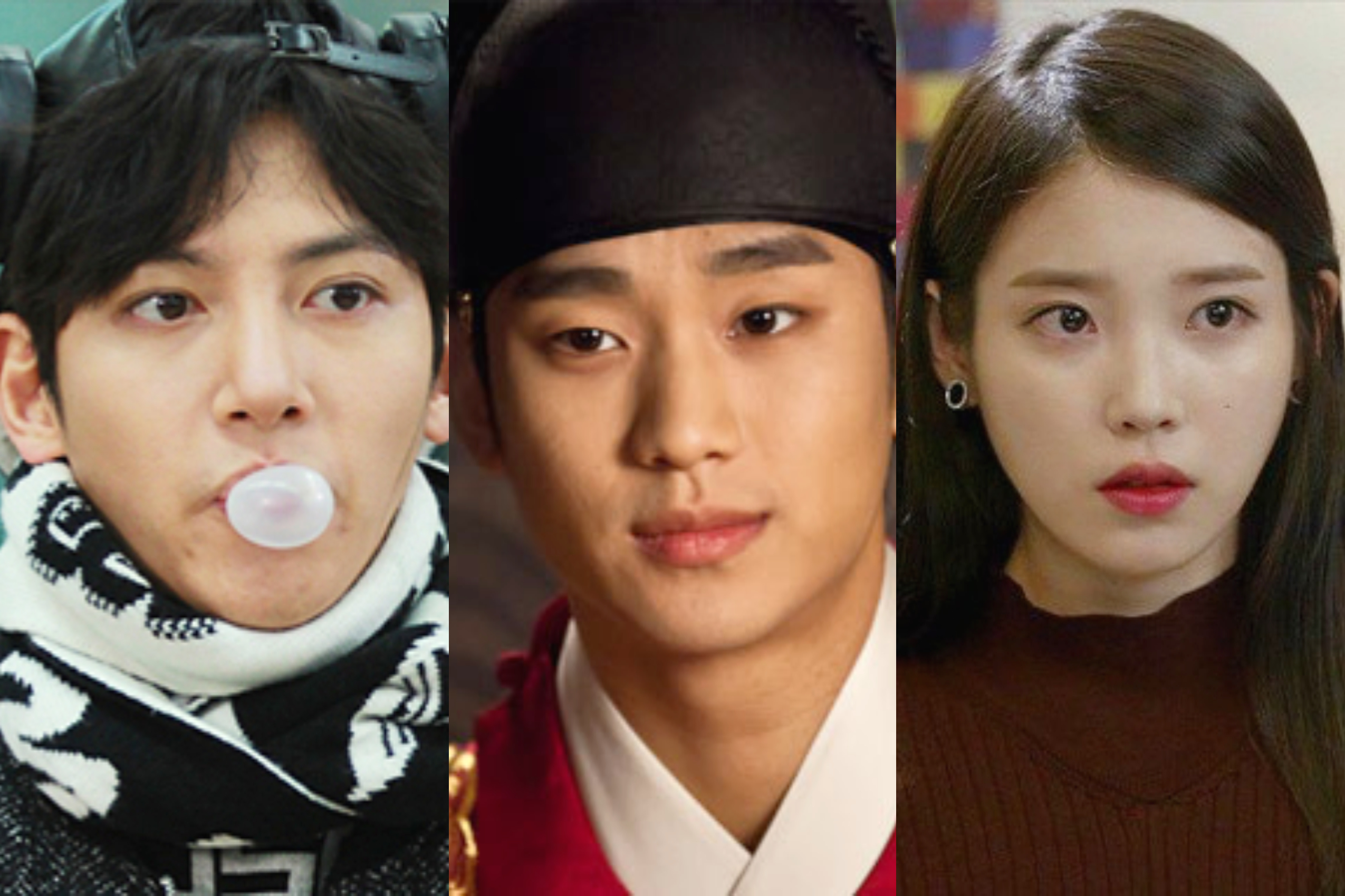Jailed For Their Golden Boy Chinese Drama: Unpacking A Powerful Trope In Storytelling Today
Have you ever found yourself completely engrossed in a Chinese drama, rooting for the seemingly perfect male lead, only for the plot to take a dramatic turn and see him facing confinement? It’s a moment that, you know, can really shake things up for viewers. This idea of a "golden boy" character being jailed is a powerful, very common storytelling device that hooks us right in. It challenges our perceptions and often forces us to look beyond the surface of what seems like an ideal life.
This narrative twist, where the beloved, often flawless, male character ends up behind bars, creates a deep sense of emotional connection. It makes us wonder about justice, about reputation, and about what happens when someone’s life gets turned completely upside down. It’s not just a plot point; it’s an exploration of human struggle and, in a way, resilience when facing truly tough times. The drama often uses this moment to explore deeper themes.
So, what exactly does it mean when a character is "jailed" in these stories, and why is this particular turn of events so compelling for audiences? We'll explore the impact of this dramatic choice, how it shapes the story, and what it might say about the characters involved. It’s a fascinating element that, as a matter of fact, keeps many of us coming back for more.
- Unveiling The Extraordinary World Of Batya Ungarsargon Through Wikipedia
- Restaurante Colombiano Cerca De Mi
- Uncover The Untold Story Of Paul Anka And Lisa Pembertons Marriage
- I Used To Pray For Times Like This
- Unveiling The Fortune Of Mirtha Jung Secrets Of Wealth Revealed
Table of Contents
- The Golden Boy Archetype and His Fall
- What It Means to Be Jailed in Drama
- Audience Reactions and Emotional Connection
- Storytelling Impact and Narrative Arcs
- Real-World Reflections and Societal Commentary
- Coping and Resilience Behind the Bars
- Frequently Asked Questions
- Looking Forward: The Legacy of the Jailed Golden Boy
The Golden Boy Archetype and His Fall
Who is the Golden Boy?
In many Chinese dramas, the "golden boy" character is someone who seems to have it all. He might be brilliant, good-looking, successful, and perhaps even kind-hearted. He often comes from a good family, or he's worked incredibly hard to achieve a high status. This character is, you know, usually the one everyone looks up to, the one who embodies ideals and hopes. He represents success and a certain kind of perfection within the story's world.
This character often starts the story in a very strong position, maybe as a CEO, a talented artist, or a respected professional. His life appears, in some respects, to be without major flaws. He's the hero, the one who seems destined for greatness and a happy ending. His journey is usually about overcoming external challenges, but rarely about facing a personal downfall of this magnitude.
Why the Fall is So Impactful
When a character like this, who embodies so much hope and perfection, is suddenly put in a situation where they are jailed, it creates a massive shockwave. It’s a very, very jarring experience for the audience, because it goes against everything we expect for him. This kind of plot twist makes us question everything we thought we knew about the character and the story itself. It’s a powerful way to add depth and unexpected turns to the narrative.
- Unveiling The Reasons Behind Mariahs Departure From Married To Medicine A Journey Of Discovery
- Unveiling The Disney Dreamlight Valley Community Challenge Discoveries And Delights
- Dog Looking Up Meme
- Unveiling The Enigma Uncover The Secrets Behind Honey Where Are My Handcuffs
- Where Is Mount Everest
The impact comes from the contrast: the golden boy, who seemed untouchable, is now in a vulnerable, confined state. This sudden change forces both the character and the audience to confront harsh realities. It also, naturally, sets the stage for a dramatic shift in the story's direction, often leading to personal growth or a quest for justice. The dramatic weight of such a moment is, quite frankly, immense.
What It Means to Be Jailed in Drama
Understanding the Term "Jailed"
When we talk about a character being "jailed" in a Chinese drama, we are referring to the act of being confined or imprisoned, usually as a punishment for committing a crime, or at least being accused of one. According to definitions, it means to put someone in a jail, a place of detention, especially for persons who are accused of committing an offense. It involves being held in a jail, prison, or similar institution by the authorities. This is, you know, a very specific legal term that carries a lot of weight.
If a person is arrested by police, they are usually jailed until they are taken to trial. Depending on the judge’s ruling, they may be jailed again as punishment for a crime. So, being jailed means being held by the authorities, often awaiting trial or serving a sentence. It’s a state of being in captivity, a loss of freedom, and, basically, a significant legal consequence. This act of confinement is, in fact, a central element of the drama.
The Dramatic Implications of Confinement
For a golden boy character, being jailed is far more than just a legal term; it's a profound narrative event. It means losing their freedom, their status, and often their public image. The jails, in many fictional portrayals, are crowded and can be quite harsh places, contrasting sharply with the comfortable lives these characters usually lead. This sudden shift into a difficult environment highlights their vulnerability. It's, you know, a very stark change from their previous existence.
The implications are far-reaching: relationships are tested, secrets might come out, and the character is stripped of their usual support systems. It’s a period of forced introspection, where they have to confront their past actions or the circumstances that led them there. This confinement, honestly, becomes a crucible for their character development. The story often uses this time to show their inner strength or weakness. It’s a rather intense turning point.
Audience Reactions and Emotional Connection
When the golden boy is jailed, audiences typically experience a wide range of emotions. There’s shock, disbelief, and often a strong sense of injustice, especially if the character is framed or wrongly accused. Viewers often feel a deep empathy for the character, hoping for their release and vindication. This emotional roller coaster is, you know, a key part of what makes these dramas so compelling. We become invested in their struggle.
This plot point also sparks intense discussions among fans. People debate the character's guilt, the fairness of the legal system portrayed, and what will happen next. It creates a shared experience, where viewers come together to process their feelings and speculate about the story. This collective engagement, in fact, strengthens the drama's overall impact. It's a powerful way to get people talking, basically.
Storytelling Impact and Narrative Arcs
Redemption and Growth from Adversity
The jailing of a golden boy often serves as a catalyst for significant character development. Stripped of their privileges and forced to face a harsh reality, characters often undergo a profound transformation. They might learn humility, discover inner strength they didn't know they had, or gain a new perspective on life. This period of confinement, in a way, becomes a forced journey of self-discovery. It's a very common path for heroes in these stories.
This adversity also provides an opportunity for redemption. If the character was truly guilty, their time in jail can be a period of genuine remorse and a desire to make amends. If they were innocent, it becomes a testament to their resilience and their unwavering spirit. The narrative, basically, uses this dark period to show how a person can grow even in the most difficult circumstances. It's a powerful message, you know.
Exploring Themes of Justice and Truth
The "jailed golden boy" trope frequently explores complex themes of justice, truth, and societal fairness. The drama might delve into corruption within the legal system, the power of false accusations, or the struggle to uncover hidden truths. It raises questions about what true justice looks like and how difficult it can be to achieve, especially for someone in a high-profile position. This exploration of moral and ethical questions is, actually, a very important part of the storytelling.
The audience is often left to ponder whether the character truly deserved their fate, or if they are victims of circumstance. This ambiguity adds layers to the story, making it more thought-provoking than a simple tale of good versus evil. The quest for truth and the eventual vindication of the character often form the core of the plot, driving the narrative forward with intense suspense. It's a compelling way to address bigger ideas, you know.
Real-World Reflections and Societal Commentary
While Chinese dramas are fictional, the "jailed golden boy" trope can, interestingly enough, reflect or comment on real-world issues. It might touch upon public perception, the impact of scandals on celebrities, or the challenges of navigating legal systems. The intense scrutiny faced by characters in these situations mirrors the real-life pressures on public figures. It's a way for the drama to, basically, hold a mirror up to society.
These storylines can spark conversations about accountability, the power of media, and the importance of due process. They can also highlight the emotional intelligence required to handle such intense public and personal crises, a topic that, you know, is increasingly relevant in our world. The way characters manage their emotions and reactions while in confinement, or facing public condemnation, can be quite insightful. It’s a very interesting connection to real life.
Coping and Resilience Behind the Bars
The experience of being jailed in a drama often forces characters to develop new ways of coping and to show incredible resilience. They might rely on inner strength, unexpected friendships formed within the detention facility, or the unwavering support of loved ones outside. This period of confinement becomes a test of their mental and emotional fortitude. It’s a chance to see how, in a way, they truly adapt to adversity.
The narrative often explores the psychological toll of imprisonment, but also the human capacity for hope and endurance. Characters might find new purpose, develop a deeper understanding of themselves, or simply learn to appreciate freedom more. The story, basically, shows how they maintain their motivation and resilience in times of uncertainty, which is a very human experience. This theme of overcoming challenges is, you know, a powerful one.
Frequently Asked Questions
What typically leads to a "golden boy" character being jailed in Chinese dramas?
Often, it's a misunderstanding, a frame-up by an antagonist, or a past secret catching up to them. Sometimes, they take the fall for someone else to protect them. It's, you know, rarely a straightforward criminal act on their part, which makes their situation more sympathetic. The plot, essentially, builds up to this moment with twists and turns.
How do characters cope with being jailed in Chinese dramas, and what impact does it have on the story?
Characters cope by finding inner strength, relying on loyal friends or family who work to clear their name, and often by reflecting on their past. Their time in jail usually leads to significant personal growth, a deeper understanding of life, and a renewed determination to fight for justice. It, basically, pushes the story forward by creating new conflicts and relationships. It's a transformative period, honestly.
Is the concept of "jailing" accurately portrayed in Chinese dramas compared to real legal processes?
While dramas aim for entertainment, they often simplify or dramatize legal processes for narrative effect. The focus is usually on the emotional impact and the character's journey rather than strict legal accuracy. So, while the concept of being jailed is real, the specifics of how it plays out in a drama might be, you know, altered for dramatic tension. For more information on legal terms and their definitions, you can learn more about imprisonment and related concepts on our site, and also link to this page here.
Looking Forward: The Legacy of the Jailed Golden Boy
The trope of the "jailed golden boy" in Chinese dramas is a powerful storytelling tool that continues to captivate audiences. It’s a way to introduce conflict, foster character development, and explore complex themes like justice, resilience, and the true meaning of success. As of December 14, 2023, this narrative device remains a compelling way to keep viewers guessing and deeply invested in the fate of their favorite characters. It's a testament to how, you know, a seemingly dark turn can lead to profound and meaningful storytelling.
The emotional journey this trope creates, from shock to hope, makes these dramas incredibly memorable. It reminds us that even the most perfect lives can face unexpected challenges, and that true strength often emerges from adversity. This ongoing fascination with the "jailed golden boy" suggests that audiences are drawn to stories that explore the depths of human experience, even when it means seeing our heroes at their lowest points. It’s a rather enduring narrative, basically.
- Cari%C3%B1osas Cerca De Mi
- Im Doing It Are You
- Unveiling The Enigma The Mysterious Fate Of Clarence Thomass First Wife
- Uncover The Thrilling World Of Kenyan Sports Your Ultimate Source Of Discovery
- Unveiling Miranda Lambert Discoveries And Insights Await

Golden Boy | The Boys Wiki | Fandom

Bad-boy-chinese-drama

K-Drama Stars with the Golden Touch